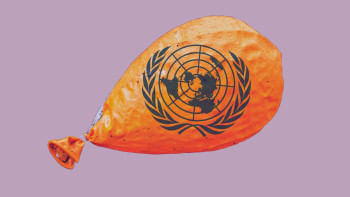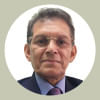Why the UN Security Council needs reforms

Making the United Nations Security Council (UNSC) more representative, inclusive, and transparent is a hot topic that is being discussed all around the world. The Atlantic Charter was established in 1941 by the United States and Great Britain in response to Nazi Germany's invasion of Europe during World War II. In a sense, this document was essentially a step forward in the establishment of the United Nations. Representatives from 50 nations gathered in San Francisco in 1945 and decided to draft the UN Charter which was formally adopted on June 26, 1945, with a resolute determination to avert war and uphold international peace, stability, and security. However, in practice, it fell short of respecting the organisation's principles.
A significant barrier in that regard has been the veto power of the UNSC's permanent members. Any resolution criticising Israel's misdeeds are blocked by the United States. On the other hand, China is applying its veto power to protect Myanmar from taking effective measures in resolving the Rohingya crisis. Given the circumstances, many countries are discussing the need to restructure the UN, particularly through the expansion of its Security Council.
The "Security Council" consists of five permanent and 10 non-permanent members from among the 193 member countries of the UN. The winners of WW2 – the US, UK, Russia, China, and France – were granted veto power in the UNSC. A UN bill or resolution is void if any of these five nations exercise their veto power. The power can also be used to send military forces or impose sanctions on nations. The primary duty of the council is to safeguard global peace and security. But the veto power of its permanent members has gotten in the way of that. Despite the fact that the 10 non-permanent members are chosen every two years, the decisions of the permanent members are regarded as final – since permanent member countries have the veto power, which the non-permanent members don't.
It is undeniable that the Security Council has failed to act timely in regards to various global crises, while carrying out the mandate given to it to settle disputes through peaceful means. Moreover, the veto-wielding nations have been abusing the UN to further their own agendas.

The Security Council recently failed to come up with an effective solution to the Rohingya crisis, despite widespread global support for the Rohingyas. China and Russia, the two UN permanent members, supported Myanmar for their own political and economic interests. As of yet, no legal action has been taken against Myanmar for committing genocide against the Rohingya. The Council's unwillingness to act has emboldened the Myanmar military to commit even more crimes. Again, in spite of Israel's aggression in the Palestinian territories and the continuous violation of human rights in the past years, the Council continues to be unable to unanimously agree to take effective action.
Article 39 of the UN Charter expressly forbids aggressive war. However, the US invaded Iraq in 2003 without the UN's approval and overthrew Saddam's regime, which was a violation of the UN Charter. Additionally, the US and UK launched airstrikes in Libya in 2011 under the pretext of "interference in the protection of human rights." Gaddafi was overthrown after the attack, and Libya is now essentially a failed state. In Syria, similar grievances have been raised. And Russia has recently invaded Ukraine, which the UN failed to prevent. These instances only show that a country's violation of UN policy increases with its power.
The continent of Europe only makes up 6.6 percent of the world's total land area. Nevertheless, they are represented by 60 percent of the Security Council (three countries are permanent members). Twenty percent and 12 percent of the world's land respectively are in Africa and South America, yet neither continent has a "permanent member" in the UNSC. The Asian continent has a representation rate of under 20 percent, while having more than 60 percent of the world's population. Despite the fact that geographic and regional participation is crucial in many UN forums, it is missing in the UNSC.
Since two-thirds of the General Assembly and all Security Council members would need to agree to any reform, increasing the number of permanent members would be challenging. However, given the current state of the world, it is now necessary to either reform the UNSC or increase the number of its permanent members.
On September 17, 1974, Bangladesh became the 136th member of the United Nations. Prime Minister Sheikh Hasina said during the 77th session of the UN General Assembly that other institutional structures, including the UN, needed to undergo practical and essential reforms. Bangladesh, however, has not yet expressed a clear position on what those reforms should be.
In that regard, Bangladesh must consider the fact that the Rohingya crisis has repeatedly stumbled due to the veto power. The third committee has approved a number of proposals on the Rohingya issue. But they have not been put into practice. So, Bangladesh needs to find out how reforming the UN may lead to a mechanism that allows for the demands of the UN General Assembly to be met.
Seven and a half decades after the establishment of the UN, reforming the UNSC would be a sensible and necessary move to balance the geopolitics of the modern era. How can the UN talk about democracy and equal rights in every country, if there is no representation of global public opinion or equal rights in the UN itself?
Kamal Uddin Mazumder is a researcher and security affairs analyst.

 For all latest news, follow The Daily Star's Google News channel.
For all latest news, follow The Daily Star's Google News channel. 









Comments